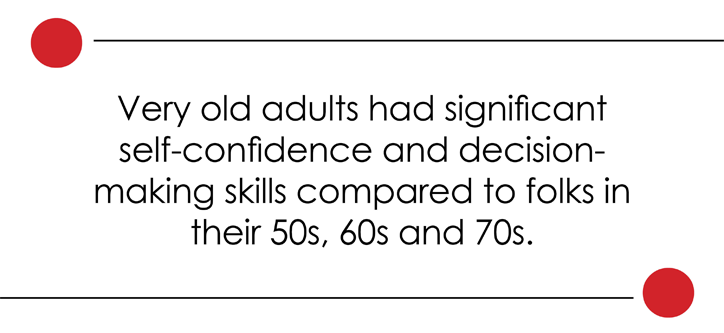Sam Kyme wanted a new life for her boys with her sister’s family in Australia after her death.
Daily Archives: 22/12/2017
Health24.com | Here’s why your eye can’t stop twitching
We’ve all had it happen: You’re trying to hold a conversation when your eye starts uncontrollably twitching. You’re afraid to look the other person in the eye, but you don’t want to seem rude, so you just hope they don’t notice.
Related: The 8 worst things you can do to your eyes
But every so often, the twitching continues. So what’s behind that eye tic, and, more importantly, can it be stopped?
The official term for this is myokymia, a slight spasm or movement of your lower or upper eyelid. The good news is, although it feels super obvious to you, in many cases, it’s not noticeable to others looking at you, according to the American Academy of Ophthalmology.
Related: Digital devices are stressing your eyes
When your eye twitches, it’s because the nerves connected to your eyelid muscles are firing involuntarily, says Ming Wang, M.D., an ophthalmologist in Nashville. In the vast majority of cases, the causes of this nerve activity aren’t serious.
Stress, caffeine, and sleep deprivation are all major eye-twitching culprits, since they all throw off your nervous system, though the precise mechanism is unknown. People under a lot of pressure at work or school will often experience eye twitching due to the perfect storm of the combination of stress, sleep deprivation, and caffeine.
Related: 10 Reasons your eyes are bloodshot (and no, it’s not weed)
Alcohol can also be a trigger for the same reason, though it’s less common, says Wang. It’s also possible to experience eye twitching due to dryness in the eyes. In this case, your eyes are closing to ensure they get enough moisture, since blinking can help lubricate them. Dry eyes can be treated with over-the-counter artificial tears
On rare occasions, an infection like conjunctivitis, or pinkeye, could be to blame, says Wang. If you also notice other symptoms like redness, discharge, or tearing, you can see an ophthalmologist for treatment, which will usually take the form of eye drops.
The unlikely worst-case scenario is that your eye twitching is a symptom of a neurological disorder, like multiple sclerosis, Guillain-Barré syndrome, or even a tumour called a glioma, Dr. Wang adds. If this is the case, the twitching will likely get worse over time and spread to other parts of the face. A doctor can perform a brain scan to test for these conditions.
Related: Why you should see an eye doctor regularly—even if you think your vision is great
If your eye twitching isn’t related to any infection or illness, decreasing your caffeine and stress, and getting more sleep, are the best ways to treat it, says Dr. Wang. You can’t make those moments when your eye starts twitching less awkward, but you can make them less frequent.
This article was originally featured on www.mh.co.za
Image credit: iStock
NEXT ON HEALTH24X

Health24.com | These personality traits may help you live longer
Researchers hunting for clues to longevity found that certain personality traits may be instrumental in lengthening your lifespan.
Mentally healthier than youth
The research was conducted in nine remote villages in the Cilento region of southern Italy where hundreds of residents are older than 90.
The study zeroed in on 29 of them, who ranged in age from 90 to 101.
While these elders had poorer physical health than younger family members, they had better mental well-being, according to the study.
“There have been a number of studies on very old adults, but they have mostly focused on genetics, rather than their mental health or personalities,” said senior author Dr Dilip Jeste.
According to Jeste, who is a professor of psychiatry and neurosciences at the University of California, San Diego School of Medicine, “The main themes that emerged from the study, and appear to be the unique features associated with better mental health of this rural population, were positivity, work ethic, stubbornness and a strong bond with family, religion and land.”
The study, which was published in the journal of International Psychogeriatrics, found that love of the land was particularly prominent.
Confidence is key
“The group’s love of their land is a common theme and gives them a purpose in life. Most of them are still working in their homes and on the land. They think, ‘This is my life and I’m not going to give it up’,” said mental health worker Anna Scelzo.
The researchers also found that the very old adults had significant self-confidence and decision-making skills compared to folks in their 50s, 60s and 70s.
“This paradox of aging supports the notion that well-being and wisdom increase with ageing, even though physical health is failing,” said Jeste.
Depression shortens lifespan
Proving the opposite to be true, a previous study by Health24 also revealed that older adults with a history of depression are at risk of living shorter lives.
While the causes of death could not be provided, previous studies showed that that depression leads to higher risk of heart disease and other chronic conditions which may lead to earlier death.
According to researcher Stephan Gilman, though depression itself cannot shorten lifespan, it can affect the physical health of those struggling with it.
Participants of the study will continue to be monitored though the study has already been published.
“Studying the strategies of exceptionally long-lived and lived-well individuals, who not just survive but also thrive and flourish, enhances our understanding of health and functional capacities in all age groups,” said Jeste.
Image credit: iStock
NEXT ON HEALTH24X




